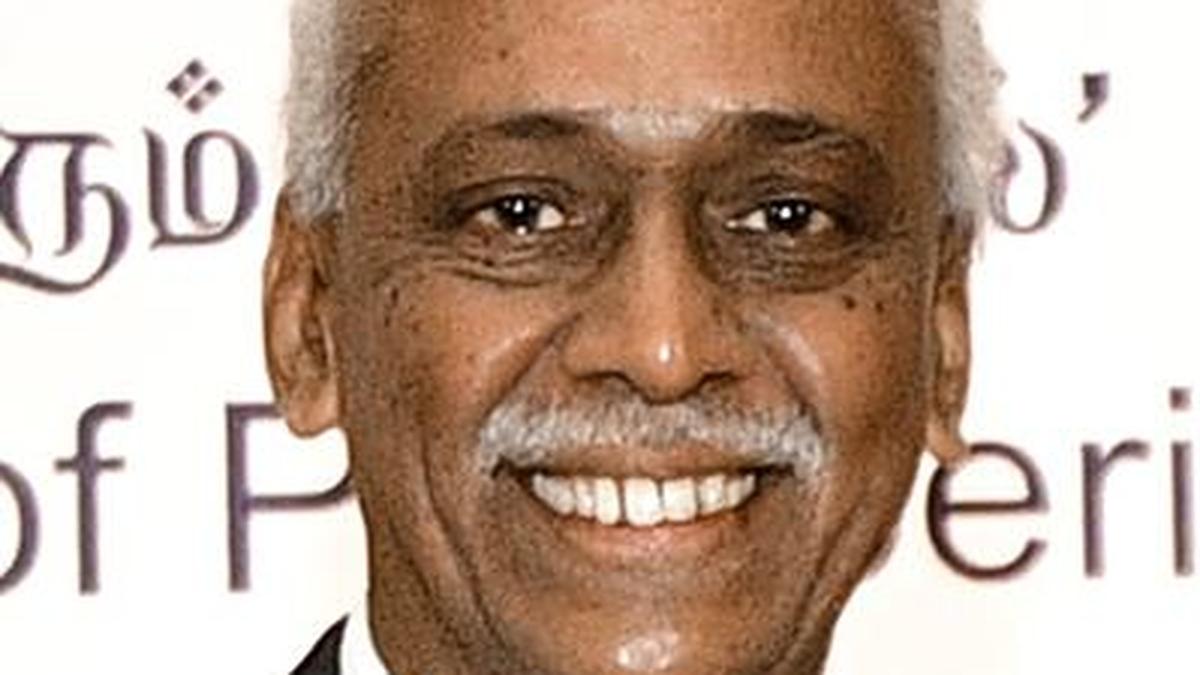As a society, our psyche is tuned to convert all civil cases into criminal cases, said Justice V. Ramasubramanian, Chairperson, National Human Rights Commission on Wednesday (April 23, 2025).
The NHRC chief questioned laws that adversely impact the ease of doing business and observed that it is due to the system, the faith of common man in criminal justice is more than administration in civil justice.
Justice Ramasubramanian was speaking at the launch of a comprehensive database documenting the extent of criminalization and punishment in India. The launch was accompanied by the State of the System Report, released by the Vidhi Centre for Legal Policy.
The report stated how more than 75% of all actions and omissions that are defined as crimes under central laws are categorised as laws that deal with areas beyond “core criminal justice”— such as shipping, taxation, financial institutions, and municipal governance.
Based on the findings of a “crime and punishment” database created and launched by the legal policy think tank, the report found that out of the 882 central laws currently in force, 42% or 370 have criminal provisions in them, which together have criminalised 7,305 actions and omissions.
An analysis of these crimes defined in these central laws showed that less than a quarter of these—1,800— are covered under 27 core criminal laws, according to the report. These include laws like the Bharatiya Nyaya Sanhita, 2023, The National Security Act, 1980, The Immoral Traffic (Prevention) Act, 1956, The Unlawful Activities (Prevention) Act, 1967, The Explosive Substances Act, 1908, The Protection of Children from Sexual Offences Act, 2012, etc.
Pointing towards a delayed judicial system, the NHRC chairperson also gave an example of how in cases of a motor accident, a lot of drivers would plead guilty just to escape the process of the entire case.
Further, the database showed that since 2022, i.e. since the Union government launched efforts to decriminalise actions in obsolete laws and provisions under the Jan Vishwas legislations, 402 actions and omissions had been decriminalised – which amounted to about 5% of all acts defined as crimes in central laws.
The report goes on to look at the impact of this “overcriminalisation” on ease of living, ease of doing business, and the rising burden it imposes on the criminal justice system. It further suggests a “principled” framework to assist future efforts to decriminalise and criminal law-making.
This comes even as the Union government announced in this year’s Budget Session that it was bringing a Jan Vishwas 2.0 law to further decriminalise acts in the interest of ease of doing business.
Among its suggestions, the report has called for the government to put all existing laws under this framework and recommended processes for it to follow while making new laws that include conducting a pre-legislative impact assessment, ensuring clear and precise drafting, move towards alternative forms of punishment that follow principles of restorative justice and non-custodial mechanisms, etc.
In its analysis, the researchers led by Naveed Mehmood Ahmed, noted that across 117 laws, 252 acts are criminalised that have to do with failure to furnish documents, returns, or statements on time. These include compliances for returns on property, wealth tax, and gifts.
Further, 112 laws contain general contravention provisions, which criminalised any non-compliance of the law, “making the scope of criminalisation vague and unpredictable”. In addition, many laws continue to criminalise routine everyday actions such as a parent failing to comply with attendance order or failing to comply with requisition to state the name and address of owners of premises.
Looking at the impact of criminalisation on ease of doing business, the report said that 124 crimes across 80 different laws criminalise obstructing a public officer without clearly defining what counts as obstruction.
The report also highlighted the over reliance on imprisonment as a punishment for crimes, noting that 73% of the crimes across the Central laws are punishable by a jail term ranging from 1 day to 20 years. More than 300 different crimes are punishable by death, with punishments like community service prescribed for just 0.1% of the crimes.
It went on to highlight that there was a “lack of proportionality and clear rationale in the prescription of imprisonment”, citing the example of underage marriages. While marrying under the age of 21 (for groom) and 18 (for bride) in punishable by up to 2 years’ rigorous imprisonment and/or fine up to ₹1 lakh under The Hindu Marriage Act, the same action under The Foreign Marriage Act attracts a jail term of just 15 days, and yet under the Indian Christian Marriage Act, it could be punishable by up to 7 years in jail.
Highlighting the strain that this “overcriminalisation” may be causing on the system, the report added, “The default application of criminal law to every regulatory or social issue prevents us from exploring more proportionate, fiscally prudent and effective alternatives.”
Published – April 24, 2025 03:55 am IST
